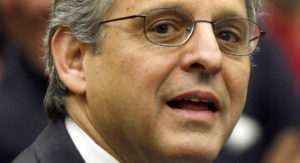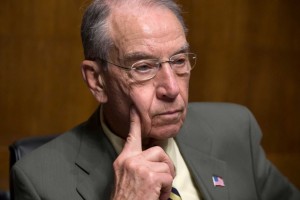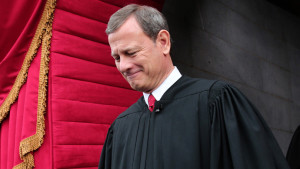John McCain must be unable to stand the sight and sound of another Republican blowing a once-great political party to smithereens.
The Arizona senator has this apparent need to get into the action himself by making an absurd — and frankly, frightening — assertion about how he and his GOP colleagues are going to handle the next president’s appointments to the U.S. Supreme Court.
Donald J. Trump’s presidential candidacy is imploding, paving the way for Hillary Rodham Clinton’s election in three weeks as the first female president of the United States.
What, then, does McCain do? He declares that U.S. Senate Republicans will make it their mission in life to block every single appointment Clinton might make to the Supreme Court.
That’s it. None will make it through the sausage-grinder of the confirmation process if Sen. McCain has his way. He’s actually one-upping the ridiculously political posture that Senate Majority Leader Mitch McConnell struck when he said that President Obama’s next pick would be stalled because, according to McConnell, he’s a “lame duck” and that the vacancy created by the death of Justice Antonin Scalia needed to be filled by the next president.
Do you remember how McConnell weighed in within an hour of he world learning that Scalia had died?
Hell, that’s not good enough for McCain. He and his fellow Senate Republicans are going to block them all!
I’ve long expressed admiration for McCain. I’ve saluted his service to the country — notably his heroic actions as a prisoner of war in Vietnam. However, my old pal Jon Talton, who knows Arizona politics better than anyone I’ve ever met, put the senator’s public life into an interesting perspective in a recent blog post. Here it is:
http://www.roguecolumnist.com/rogue_columnist/2016/10/a-looming-constitutional-crisis.html
As Talton wrote: “From ‘moderate’ ‘independent’ McCain, we have warnings of what’s to come. This puts him in the Kook camp that would make Hillary’s election automatically illegitimate. Four years of scorched earth and worse.”
I’ll let Talton’s assessment of McCain’s career stand on its own. He knows more about it than I do.
The idea that McCain would quadruple-down on efforts to block the next President Clinton’s appointment authority to fill potential vacancies on the nation’s highest court creates the threat of a serious constitutional crisis. It could be far worse than, say, Watergate — which was pretty damn frightening.
I continue to hold out hope that President Obama’s pick to replace Scalia — U.S. District Judge Merrick Garland — would get a hearing in the lame-duck session of Congress once the election is over. Senate Republicans might lose control of the upper chamber as Trump’s candidacy goes down in flames. Garland — as solid and mainstream a nominee as you can imagine — might prove to be as suitable a court pick as they could hope for.
Now we have Sen. McCain declaring that no one Clinton would select will be able to pass Senate GOP muster. No one!
Obstruction, anyone? There you have it — in the starkest terms possible.









